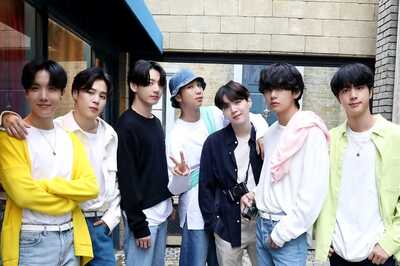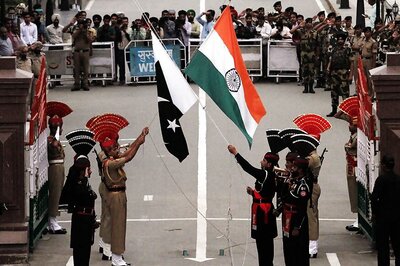
views
Your book is a psychological thriller. What gave you the idea to write a thriller?
I did not set out to write a ‘thriller.’ That is my editor’s genre selection. It is a convenient label.
■ Are you generally drawn to thrillers yourself?
No. I am drawn to fiction of high quality, no matter what the genre is.
■ Does the book have anything to do with an incident in your life? Can you recount it for us?
Yes, as a university student (many years ago), I shared a flat with medical students while I was doing a ‘soft’ arts degree. I could see the high pressure the ‘medicos’ were under. So on weekends they would play pranks on each other to combat stress, which used to get out of hand sometimes.
■ Tell us the point in your life when you decided to become a writer. Why write? Why not films? Especially when the habit of reading is on the decline
I used to teach creative writing but decided to put into practice what I preached. Reading habits are on the decline in the developed world but publishing and reading fiction is taking off in India, which is exciting. Writing fiction is singular and solitary while making films is totally opposite, it is a huge logistic nightmares.
■ Why is the book called Prankzz? Tell us more about the book, the story line and where the idea came from. Did you change course anywhere? If yes, Why?
The book deals with 6 medical college students who are in one study group and end up being jealous and playing pranks on each other, leading to a tragedy. The title ‘Prankzz’ like the cover design is supposed to be indicative of and a hint of what the novel content is about. Also, for commercial reasons it is supposed to be ‘eye catching.’ Yes, I changed the ending.
■ What difficulties did you face in trying to weave a story that readers would find thrilling and ensure effective research at the same time.
I don’t believe in research details where fiction is concerned. Imagination is more important than facts in fiction.
■ What are the ingredients according to you that make a perfect thriller?
I have a simple approach. Every story has a beginning, a middle and an ending. These three stages can be considered as ‘set up,’ ‘confrontation,’ and ‘resolution’ stages where a writer sets up a situation of conflict between the protagonists and the antagonists and ends with a resolution. A little bit like playing God, creating and destroying as the story decides.
■ What kind of books are you planning to write in the future? Are you planning to experiment with other subjects?
Next book is about whether ghosts exist or not and as a theme it explores how the past influences the present for the sake of the future. The setting is the cultural transition of ‘entertainment’ from stage to screen and explores how one has impacted the other.
■ What are the kind of challenges faced by a new writer? Is it very difficult to make your story convincing?
Major challenge any serious writer faces is making the story a ‘commercial hit’ or a work of superb literary quality.
■ A lot of famous authors have written brilliant thrillers. So what is the little extra twist you put that makes your book stand out?
Plot led or character led? Present trends seem to favour plot led fiction with many entertaining and enthralling ‘twists.’ Prankzz ends with a huge ‘twist,’ almost me as a writer playing a friendly prank on the readers.
■ Tell us about your background, where you studied, your other interests in life and also your future plans
I studied in England and drifted into academic life. Now I am returning to ‘doing’ rather than ‘teaching.’ Future plans are to keep writing fiction and keep an eye on trends developing in the world of fiction in India, both in print and on screen.
■ Who are your favourite authors. Did you get an inspiration from some book for Prankzz?
I always liked Hemmingway for precision and economy. My definition of fiction is that it is a great big lie made of little truths. Each sentence that Hemmingway wrote had a shine of truth about it. For today, Amit Chaudary is fairly close.
■ Being a new writer how do you deal with criticism?
Honest ‘feedback,’ whether critical or not is very valuable as it helps a writer to come out with better work.


















Comments
0 comment